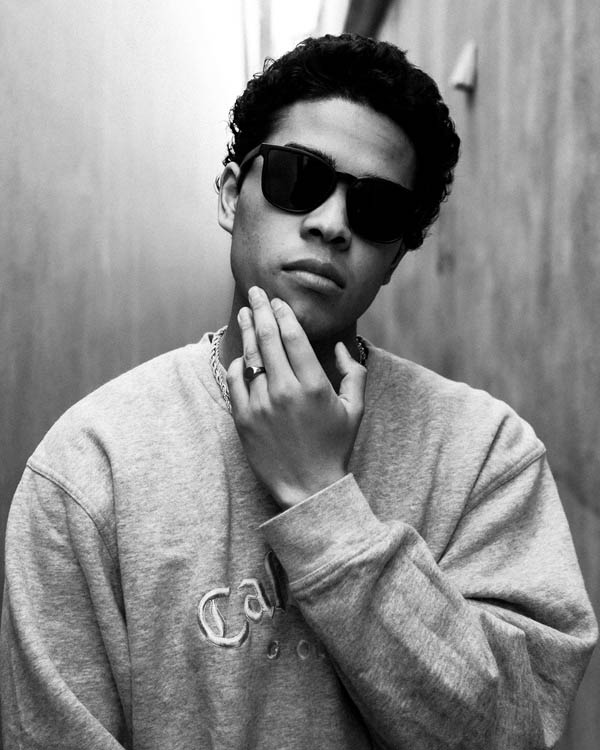SPEAK ON IT: Lee Daniels Speaks On Racism of Paula Deen & The South — "I Like Paula Deen, She’s Not Hiding Anything….And I Feel Safer In The South."

Director Lee Daniels may have ruffled a few feathers with his latest interview with Huffington Post. The head honcho of Lee Daniels’ The Butler gave his take on why he’s not mad at Paula Deen, why he feels safer in the south since he "knows his place" there, and why he feels whites in the south have a complicated "affection" for blacks….
The relationship between his lead character, Cecil the butler as a young boy, and the character played by Vanessa Redgrave is one that shows an elder white woman caring for a young black boy. But, like often in real life, she had no qualms about putting him "in his place" treated him as less than equal.
Lee says he feels safer in the south though, still, because at least he knows what those who hate him really think about him. And he knows "his place" in their eyes as a black man. He also believes Paula Deen was simply a symptom of her time, and both he and his mom still are fans.
Here are the highlights:
HUFF POST: There’s a great moment early in the film when young Cecil refers to himself with the n-word, and the character played by Clarence Williams III slaps him and says that Cecil should never say that word. Later, you have the character played by Cuba Gooding Jr. use the n-word for a punchline about Lyndon B. Johnson. What kind of conversation do you want this film to start about the use of the n-word in pop culture? For instance, I know Oprah is against it …
I think that everybody is entitled to their opinion about the n-word, but there is a lot of validity about what Oprah has said. And yet, in private, the word is used amongst African-Americans — and probably, in private, with white people.
We saw that with Paula Deen.
Yeah. But, no, with Paula: I like her. My mother loves her. Even afterwards, we understand that her racism and her usage of that word is so deep and so complicated. In the South, there was a love-hate relationship. White people loved black people in the South. I think there was a true, deep affection — people will argue with me about that — but just don’t step out of your line. Because then you’re at a place that’s not so good. Is it love? I don’t know.
You address that in the film with the character played by Vanessa Redgrave. She has a strong connection with Cecil when he’s a young boy, but she’s also not above treating him as a lesser being.
It’s complicated. Racism is complicated. I think that in the South, it’s clear. I feel safer in the South, then I do in metropolitan cities, where racism is subversive. Because they will do it behind your back. You know where you stand in the South. You know your place, because they will let you know your place. I’d rather have someone tell me the truth about me than go behind my back. Wouldn’t you?
….
So I think that’s what my mother meant when she said that about Paula Deen. She wasn’t hiding anything. Now, I don’t trust what Paula Deen is saying now. I think it’s all manufactured now, because she’s trying to apologize for something I don’t think she should be apologizing for.
Lee Daniels’ statements have come as a bit of a shock, especially to those who couldn’t agree less that whites have a bond with & affection for blacks in the south that makes them seem less harmless than whites in northern states.
Is racism a bit more overt in the south? Sometimes. But should that false sense of security — where not everyone hides their disdain for blacks — make us feel safer? Absolutely not. Whether a non-minority person is telling you, as a minority, to your face they hate you, or if they’re hiding it, our instincts and experiences tell us it’s a huge possibility they think lesser of us regardless, before they even open their mouths. So we don’t feel "safe" either way.
It’s also interesting to note that Lee was born and raised in Philly and went to school in the midwest. And it does seem that those who never LIVED in the south, can sometimes have a warped view of how living in the south and the ingrained racism truly can be for the black community. Just visiting many southern states is like visiting your significant other’s side of the family. You never know the real deal about the inner workings of their minds and hearts until you marry into the family and deal with them every single day of your life.
We may disagree with Mr. Daniels on some points, but we’ve gotta ask. What’s your take on his words?
Read the whole interview over at Huffington Post.
Photo: Getty
,
Original Post Source – http://www.theybf.com/








